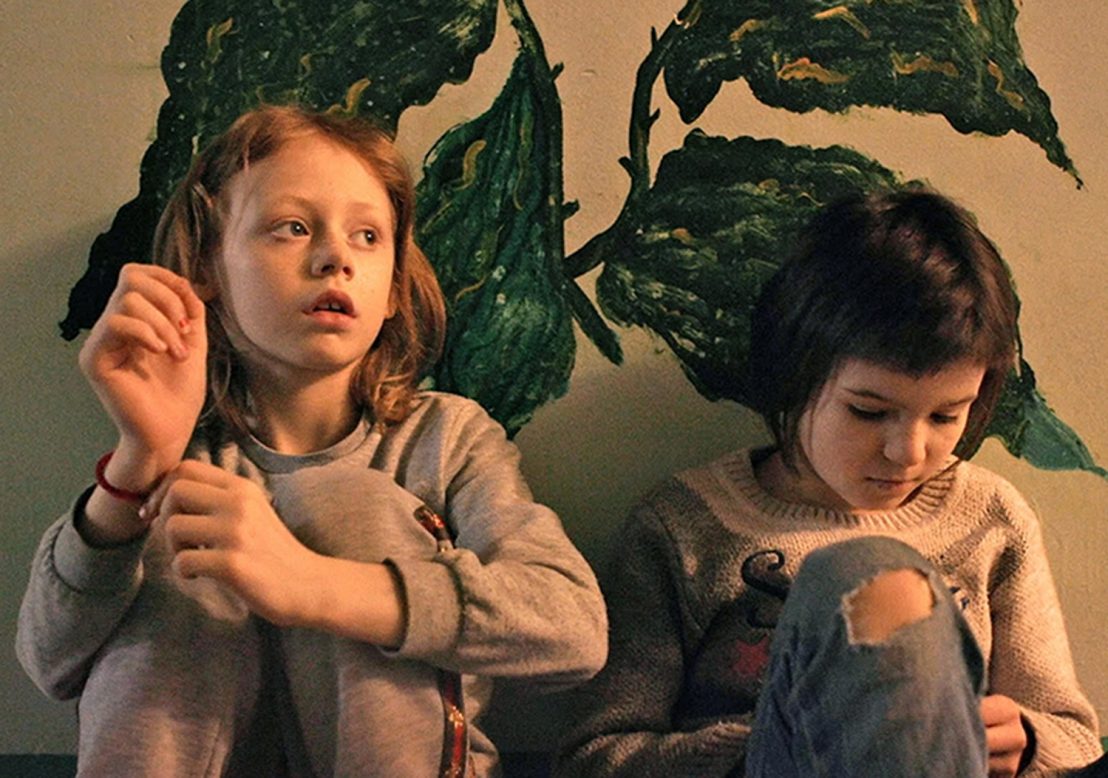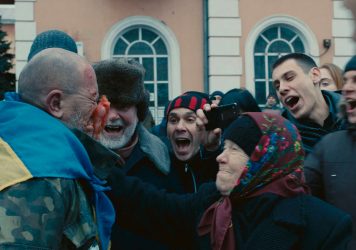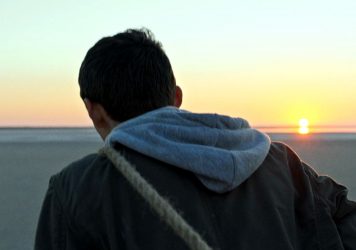
Prescient and deeply affecting Ukraine-set doc exploring the lives of children displaced by the country's 2014 invasion.
A quiet urgency dictates the lives of youngsters residing at the Lysychansk shelter in eastern Ukraine, which provides temporary accommodation to neglected children from splintered families. Their stay is limited to a maximum of nine months, after which, if their parents are unable to take them back, they are moved into an orphanage, adopted by a relative or a foster family.
Simon Lereng Wilmont’s A House Made of Splinters is less about the 2014 conflict in Ukraine, and more about the invisible and gruelling after-effects of war. The voiceover informs us that, “every tenth door here hides a broken family”.
Years of conflict have pushed parents to alcoholism and domestic abuse, rendering them ill-equipped to raise their children. Splinters sees a group of headstrong and immensely devoted social workers creating a safe haven and a temporary yet strong familial bond for children whose futures are being negotiated by state authorities and court proceedings.
Instead of following an archival path or adopting an interview-driven format, Wilmont’s camera opts for an observational mode which unfolds with great patience, softly delineating the portraits of Eva, Alina, Sasha and Kolya. Warmth envelops each corner of the shelter that’s coloured with small pockets of hope, with Wilmont’s exquisite cinematography gleaming over fawn-coloured walls and lending the interiors a remarkably soft shimmer.
Rays of sunlight creep in through sheer curtains as Alina and Eva hide behind it pretending to be ghosts, and a colourful kaleidoscopic light emanates from a sphere under bed sheets as they forge bonds by sharing stories about their broken lives.
There’s an instability in the pacing which fluctuates at parts, but this is not to the documentary’s detriment. Rather than making the viewing experience awkward, the episodic, splintered approach in following each child gives the film a strong narrative feel, while aptly conveying the precarious atmosphere of the shelter.
Despite its slightly manipulative elements (a melancholic score that at times veers into melodrama, and a social worker’s voiceover that becomes somewhat heavy-handed) the line is tread with care. Wilmont’s young subjects have a brilliant rapport with the camera that never feels feigned. There’s a palpable familiarity and trust between the children and the crew, which is thoroughly reflected; never do we feel that they’re being patronised, or that their vulnerability and precarity are being overstated.
In the wake of the recent invasion, the children have been evacuated away from the frontline and towards a safer area, and while healing is an unstable and nonlinear process, it would be reductive to agree with the voiceover’s assertion that, “hope dies last”.
The voiceover also refers to instances where children who were residing at the shelter in the past, have grown up and turned into their parents, condemning their own children to the same circumstances. Referring to these cycles of unbroken intergenerational pain, this conclusion is unfortunately presented as an eventuality rather than a possibility, yet the current situation in Ukraine only complicates this predicament.
To be immersed in the cinematic experience of Splinters and sustain a level of objectivity and detachment, is an impossible task. I have never felt the immediate effects of displacement, but I’m no stranger to its intergenerational manifestations. Since my grandparents and their children – my mother and uncle – fled their hometown Varosha during the 1974 Turkish invasion of Cyprus, my mother seldom engages with cinema, literature or theatre that explicitly deals with war and displacement, sustaining her resilience and self-preservation.
Yet the memory of her trauma is bound to oscillate. The air raid sirens that sound across the island year after year, marking the anniversary of the military coup and the subsequent invasion, always chipping at her seemingly bulletproof exterior. With the invasion of Ukraine being thrust to the forefront of media coverage on current affairs (the country’s European status lending it more attention than ongoing conflicts in Cyprus’ neighbouring Middle Eastern countries), memories of that summer afternoon when she left her childhood home never to return, haunt her daily.
Each conflict comes with its own geopolitical specificities of course, but if one thing remains universal, it’s not that “hope dies last”. Rather, the wound of war and displacement is enduring and permanent for children, whose formative years are condemned to the obscured contours of deprivation. The futures of the Lysychansk children are as precarious as ever, and Wilmont’s film depicts that ugly and complicated reality with incredible honesty, authenticity and care.
Support our independent journalism and receive monthly film recommendations, exclusive essays and more
Become a memberPublished 19 Mar 2022

War leads to absurd moral decline in the Ukraine in Sergei Losnitza’s pitch-dark comedy of oppression.

This brooding Ukrainian road movie shows major promise for its first-time director, Nariman Aliev.

An popular uprising in Ukraine is captured by the calm, collected director Sergei Loznitsa in all its abject horror.